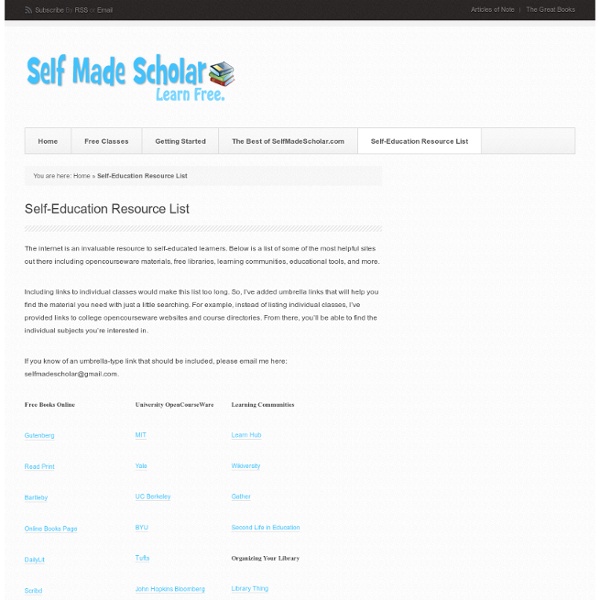List of academic databases and search engines
Wikipedia list article This article contains a representative list of notable databases and search engines useful in an academic setting for finding and accessing articles in academic journals, institutional repositories, archives, or other collections of scientific and other articles. Databases and search engines differ substantially in terms of coverage and retrieval qualities.[1] Users need to account for qualities and limitations of databases and search engines, especially those searching systematically for records such as in systematic reviews or meta-analyses.[2] As the distinction between a database and a search engine is unclear for these complex document retrieval systems, see: the general list of search engines for all-purpose search engines that can be used for academic purposesthe article about bibliographic databases for information about databases giving bibliographic information about finding books and journal articles.
100 Incredible Lectures from the World’s Top Scientists
Posted on Thursday June 18, 2009 by Staff Writers By Sarah Russel Unless you’re enrolled at one of the best online colleges or are an elite member of the science and engineering inner circle, you’re probably left out of most of the exciting research explored by the world’s greatest scientists.
Study Guides: Thinking Critically About Critical Thinking
by Ralph Dumain “Condescension, and thinking oneself no better, are the same. To adapt to the weakness of the oppressed is to affirm in it the pre-condition of power, and to develop in oneself the coarseness, insensibility and violence needed to exert domination. . . ” — Theodor Adorno, Minima Moralia (London: Verso, 1987), end of section 5 (p. 26) “The weak points in the abstract materialism of natural science, a materialism that excludes history and its process, are at once evident from the abstract and ideological conceptions of its spokesmen, whenever they venture beyond the bounds of their own speciality.” — Karl Marx, Capital, Vol. I, Chapter 15.
CTL Events - Award-Winning Teachers on Teaching
Below is a list of memorable lectures on teaching, organized according to topic, by teaching-award-winning Stanford faculty. Click on the links immediately below to jump to the topic or talk that interests you. Topics: Case Method Teaching:
To do list, simple, easy, fast, sharable: Ta-da List
Hello, We launched Ta-da List back in January of 2005 so everyone could have a fast and free to-do list app in their web browser. There wasn’t much out there that was good in 2005.
100 Amazing Web Tools for Hobbyist Scholars
Art & Design A student attending a school of art and design must learn how to communicate ideas through visual language. They study contemporary and classic artists, and learn traditional and modern methods of creating art, covering media like paint, sculpture, textiles, or digital design. With solid foundations in drawing, developed discipline and knowledge, students may pursue a variety of careers in graphic design, product design, conceptual art, illustration, and other fields. Read More About Art & Design Subjects
Lesson Plan Maker
Need Tons of New Worksheets? - 50,000+ printables - Save Time! View Now... Math and English Language Arts - 15,000+ English - 5,000+ Math See It Here...
Developing an Appetite for Hard Ideas
Richard Feynman, professor and Nobel-prize winning physicist purportedly only had an IQ of 125. Smart, but hardly in the rarefied spectrum we normally consider for genius. This trivia is usually brought up to show the ridiculousness of IQ testing. If an obvious genius doesn’t qualify for Mensa, how valid can it be for normal people?
The Thinking Classroom: Ways of Thinking
Effective thinking-centered instruction aims to achieve two educational objectives: To cultivate the active use of knowledge, and To help students become self-regulated learners. Toward that end, this section of The Thinking Classroom highlights four thinking-centered approaches for infusing high-level thinking instruction into your regular curriculum. The Ways of Teaching Thinking region features a preview and description of each of the approaches. Why These Four Approaches? The four approaches to teaching thinking represent some of the research and products of the Harvard's Cognitive Skills Group. But more important, the four approaches together broadly attend to the core components of the instructional enterprise - from curriculum design, to implementation, to assessment.



